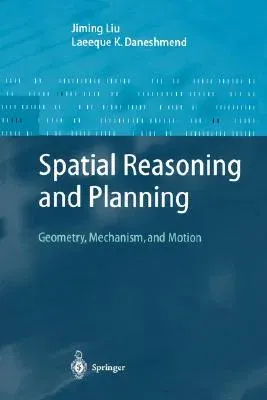Jiming Liu
(Author)Spatial Reasoning and Planning: Geometry, Mechanism, and Motion (2004)Hardcover - 2004, 4 December 2003

Qty
1
Turbo
Ships in 2 - 3 days
In Stock
Free Delivery
Cash on Delivery
15 Days
Free Returns
Secure Checkout

Part of Series
Advanced Information Processing
Print Length
180 pages
Language
English
Publisher
Springer
Date Published
4 Dec 2003
ISBN-10
3540406700
ISBN-13
9783540406709
Description
Product Details
Authors:
Book Edition:
2004
Book Format:
Hardcover
Country of Origin:
US
Date Published:
4 December 2003
Dimensions:
23.39 x
15.6 x
1.27 cm
ISBN-10:
3540406700
ISBN-13:
9783540406709
Language:
English
Location:
Berlin, Heidelberg
Pages:
180
Publisher:
Weight:
458.13 gm